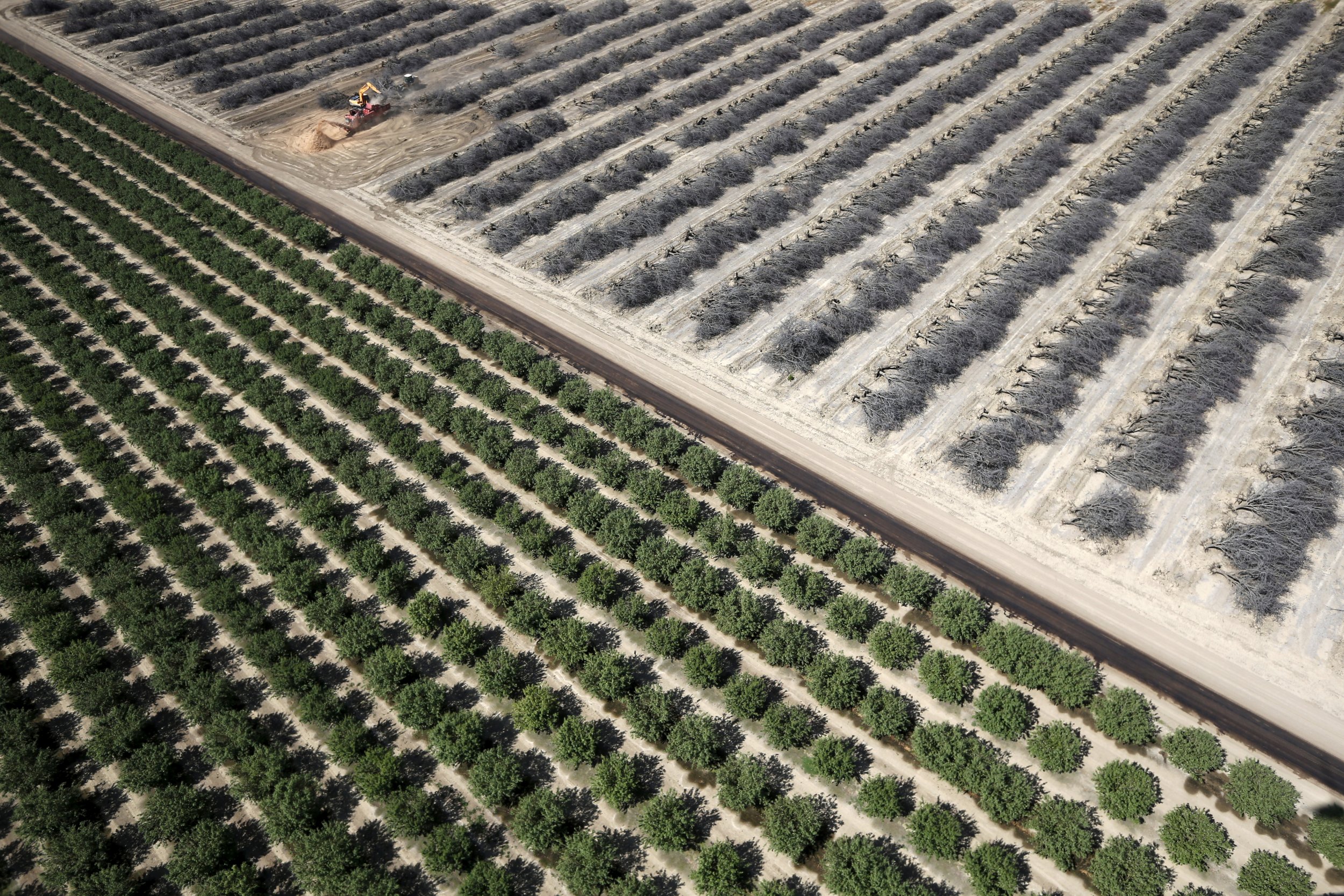
Updated | Without climate change, the California drought would still be a drought but it wouldn't be a disaster, scientists have found.
A study published Thursday in the journal Geophysical Research Letters concludes that in the absence of global warming, the drought that has plagued the Western U.S. for the past several years would be as much as 27 percent less severe.
Put another way, roughly three-quarters of the drought's intensity is due to natural variation—a concerning figure, given how unprepared California's infrastructure was for the event. Even worse is that fact that next time, due to increasing global warming, that ratio will look different, says Park Williams, a bioclimatologist at Columbia University's Lamont-Doherty Earth Observatory and lead author of the paper.
As the world continues to warm, the portion of drought caused by climate change will grow, while natural variation will "continue to do its thing," Williams explains. In other words, if a drought that was mostly due to natural variation could wreak this much havoc (and cost California, so far, an estimated $2.7 billion), the next one will surely be worse.
"We will see systems being pushed beyond their limits," Williams says. "During this drought, we're already seeing catastrophic wildfires, millions of trees dying, towns running out of water. We're already seeing systems be pressed. If California is already on the ropes by a drought that's mostly caused by natural variability, that signals California will be in real trouble when warming continues, and we see more drought in coming years."
Drought that's due to natural variation, the researchers explained, is driven largely by a lack of rainfall. But rising global temperatures have worsened typical droughts by intensifying evaporation. The warmer atmosphere sucks more moisture out of the soil, creating far drier conditions than the lack of rainfall alone.
According to Williams, the warmer atmosphere this year is demanding roughly 3.5 inches more water off of California's surface than it was in 1895. That means all of California would need to get 3.5 inches more rainfall each year to meet that demand. Yet rainfall trends aren't changing, so those inches aren't coming.
By laying out exactly what portion of the drought is caused by human-driven climate change, Williams hopes the paper will clear up some "dangerous" confusion among the public about what's causing the drought. "Some people believe it's entirely natural variability, and others who think it's entirely global warming. Both of those perspectives are dangerous for California's future," he says. An ardent belief that the drought is entirely man-made may set people up for a surprise when it starts to rain again in a few years. "That may lead them to stop believing [in climate change]," he says, when in fact climate change will still be worsening.
Williams predicts this drought will end in the next year or two. But even if California weather becomes temporarily wetter, the chronic trend toward drying will still hold fast. "[It] may be hidden a little bit by natural variability, but it is pretty certain that California by 2050 will be a different world."
"One hope in publishing this article is that California managers and officials can remember this drought as a canary in a coal mine for warming. When it gets dry again, it's likely to be worse than it is now. This is a good time to get policy and infrastructure up to snuff."

This article has been updated to reflect more precise evaporation estimates.
Uncommon Knowledge
Newsweek is committed to challenging conventional wisdom and finding connections in the search for common ground.
Newsweek is committed to challenging conventional wisdom and finding connections in the search for common ground.
About the writer
Zoë is a senior writer at Newsweek. She covers science, the environment, and human health. She has written for a ... Read more





